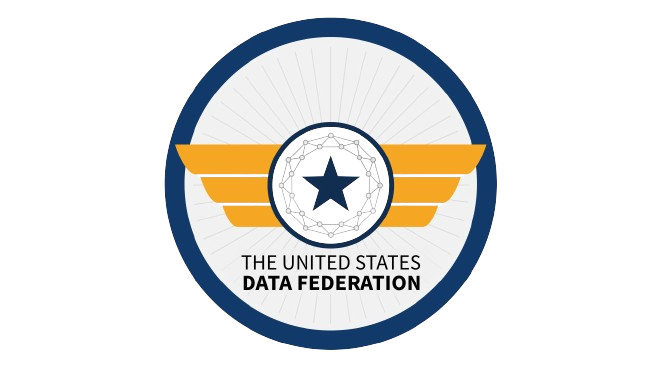We’re pleased to announce that Open Referral is one of the first seven initiatives to be featured by the U.S. Data Federation, a new project from the federal General Services Administration, in association with Data.Gov, to promote the effective use of civic data through interoperability.
As the GSA explains in its introduction of the new project: “The U.S. Data Federation will support government-wide standardization and data federation initiatives across both Federal agencies and local governments.”
In its initial form, the U.S. Data Federation is simply highlighting a set of data standardization initiatives — such as the Voting Information Project, Open311, and the Building and Land Development Specification (BLDS), alongside Open Referral. These initiatives are diverse, yet they share common goals: to improve the accessibility and deliverability of critical public information (in these instances: data about elections, municipal operations, and permitting data, respectively) across jurisdictions and technically varying environments.
By promoting these efforts, the U.S. Data Federation can expand the range of options — and decrease the costs and risks thereof — through which institutions and people can share and find information, and put it to work for their communities. In the future, such support might involve the development of tools and procedures to facilitate standards development and implementation, and providing tangible support (i.e. human resources) for the coordination thereof.
Phil Ashlock is the Chief Architect of Data.Gov, and the champion of the U.S. Data Federation. He has personal experience with these challenges of data standardization, given his longstanding efforts to establish and promote Open311. (He has also participated in the Open Referral network from its very beginnings, providing helpful guidance and connecting key stakeholders along the way.)
Ashlock describes the objective of ‘data federation’ to FedScoop as such: “basically how do you coordinate among multiple data publishers… so that it’s sort of one cohesive whole?”
To me, this appears to signal a significant evolutionary shift in thinking.
Data.Gov was initially conceived as a ‘centralized clearinghouse’ of federal government datasets. The US Data Federation proposes a new (and apparently complementary) approach: its About Page describes a transformation from this “centralized process for inventorying, releasing, and documenting data into a decentralized, but standardized, process for managing all data assets.”
Another way to say ‘decentralized but standardized’ is ‘distributed’ — the design principle that enabled the emergence of the internet and the World Wide Web, by establishing vocabulary and protocols that could be freely used by anyone, anywhere, for any purpose.
Which is to say, the familiar demand to get data ‘all in one place’ may best be met by identifying all places from which the data comes, and establishing commonality among them.
§
That poses quite a challenge.
In FedScoop’s reporting about the U.S. Data Federation, Socrata CEO Kevin Merritt observed, an “enormous data silo problem” that endemic within and across governments and NGOs, a dysfunction of the very way that funding is allocated.
At the blog of the new Joined-Up Data Standards Initiative, Danny Walker recently elaborated on this very problem: “Incentives for coordination across data producers are weak; it’s often more expedient to create your own fit-for-purpose system than try to build consensus around interoperability. This expediency often leads to investments in standalone data-gathering mechanisms and platforms.”
This is at least equally true for the non-profit sector, where technology projects fail just as commonly as in government, many of which zombie onwards indefinitely.
As a result of this ad-hoc, nonstandard approach, it becomes far more difficult to actually make sense of and use of all of this data — whether for purposes of alternative local activities through new (or adapted) technologies, or for trans-national research and analysis.
Interoperability across agencies, jurisdictions and vendors would often benefit all parties — however, it requires work for coordination, implementation, testing, etc. This is often slow, hard, relationship-building work, and sometimes boring labor. Public funding mechanisms typically do not allocate resources to support such work.
If we’re ever going to cope with these challenges, those of us working along parallel paths towards interoperability must cooperate with each other.
§
Hence, the new Joined-Up Data Standards Initiative.
At the recent 2016 International Open Data Conference in Madrid, thanks to our friends and partners at MediaLab Prado, I had the opportunity to join this hardy crew to present about our work during their pre-conference event.
The Joined-Up Data Standards project was recently convened by Development Initiatives and Publish What You Fund, with support from the Omidyar Network. JUDS (which I’d say in this phase is more or less a confederation) includes a range of participants from the International Aid And Transparency Initiative (IATI), the Extractives Industries Transparency Initiative (EITI), the Open Contracting Data Standard (OCDS), Open Corporates and more.
The JUDS initiative has already put forth a range of recommendations for policymakers, funders, and practitioners — offering up best practices, needed capacities, etc.
JUDS first project is taking action on a common challenge that all of these standards initiatives share — that of organizational identifiers. The Identify-Org initiative is establishing a kind of registry of registries of incorporated entities, using a common methodology to describe data that has up until now been jumbled incoherently across sectors and jurisdictions.
This is too big a challenge for us or any of the other data standardization initiatives to tackle on our own, but if these initiatives can work together — as noted by Tim Davies of the Open Data Services Cooperative — the problem becomes rather tractable.
Kudos to the GSA and its US Data Federation for illuminating the swell of momentum in this direction, and also to the Joined-Up Data Standards Initiative for getting right to work. May these be the formative early days of a new era of civic technology infrastructure.


Leave a Reply